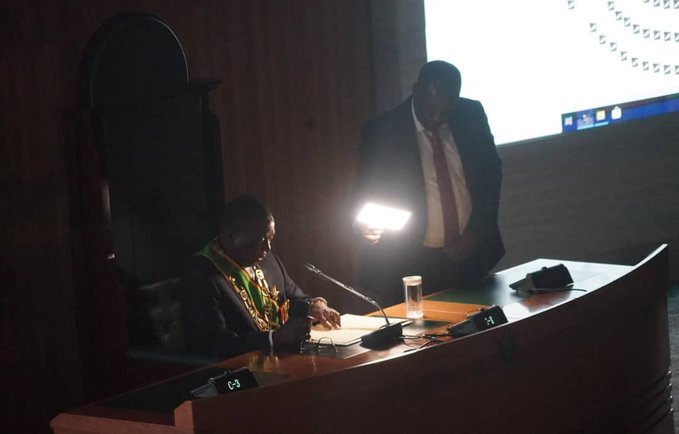Government's move to privatise and restructure Zimbabwe's state enterprises and parastatals (SEPs) will have a significant impact on the growth of the local capital markets, according to analysts at Akribos Research Services.
Earlier this year, the Government intimated plans to implement a massive plan for the privatisation of SEPs.
So far Government has published a priority list of companies including Air Zimbabwe, National Railways of Zimbabwe (NRZ), Cold Storage Company (CSC), Zimbabwe Electricity Supply Authority (ZESA), Netone, Telone and Zimpost and POSB, Industrial Development Corporation of Zimbabwe (IDCZ) subsidiaries, Olivine Holdings, Agribank, and CAPS Holdings among others.
Akribos Research Services says to the extent that a significant number of these entities are privatised, this could result in some or all of them listing on the Zimbabwe Stock Exchange (ZSE), which is the linchpin entity of the local capital markets.
"Zimbabwe has over 100 parastatals whose capital stock is at $14 billion, but 99 percent of these have been loss-making. We expect this development to deepen local capital markets given the possibility of new listings on the Zimbabwe Stock Exchange," said the analysts.
Zimbabwe's capital markets are not that well developed and are dominated by shares although one can invest in Collective Investment Schemes and/or Unit Trusts and other privately sold funds.
"Further, the recapitalisation of entities such as the Cold Storage Company (CSC) would also have spill-over effects within the broader macro-economic environment."
Earlier this week, sister paper The Herald Business reported that Government is edging closer to concluding a deal to re-capitalise the Cold Storage Company with potential investors.
The report said Lands, Agriculture and Irrigation Development Minister Perrence Shiri, had confirmed that there are a number of companies that have shown interest in CSC and have carried out due diligence.
The giant beef processor is among the 12 state enterprises earmarked for speedy recovery under the parastatal reform initiative being implemented by the new political dispensation.
SEPs are entities established by Government as vehicles for delivering socio-economic services to the nation. Significantly, SEPs are there to act as enablers that drive the country's economic growth.
State enterprises usually are corporatised entities operating under the Companies' Act, and the Government expects them to operate like any other business, that is, to make profit and declare a dividend to the shareholder.
Whereas parastatals are those entities that are governed by Acts of Parliament and are wholly owned by the Government, these in most instances have a social obligation.
But over the years, precisely the last decade, state enterprises and parastatals have tottered under numerous macro-economic challenges that have contributed to a significant decline in their performance.
These include liquidity challenges, which had a negative bearing on the procurement of new equipment, technologies and spares, and a huge debt overhang.
And a lack of good corporate practices, coupled with inept management in most instances compounded the position.
"The move by the Ministry of Finance and Economic Planning to review the portfolio of state owned entities (SOEs) is very welcome move.
"There's need to divest out of unprofitable investments by the government and open up certain industries to the more efficient private sector. This is a possible opportunity for the private sector to enter into areas that were once reserved for the Government," said Akribos.
- zimpapers
 Zimbabwe announces strict enforcement of axle load limits
Zimbabwe announces strict enforcement of axle load limits  SA decry 'non-existent' Beitbridge border post security
SA decry 'non-existent' Beitbridge border post security  Millions celebrate Diwali festival in India
Millions celebrate Diwali festival in India  Zimbabwe's dollar stock exchange surges 45%
Zimbabwe's dollar stock exchange surges 45%  Gold edges up as traders await guidance
Gold edges up as traders await guidance  Karo Platinum Project capex rises to US$546m
Karo Platinum Project capex rises to US$546m  Young Investment Professional (YIP) Graduate Programme 2019
Young Investment Professional (YIP) Graduate Programme 2019 









 Young Investment Professional (YIP) Graduate Programme 2019
Young Investment Professional (YIP) Graduate Programme 2019
Editor's Pick